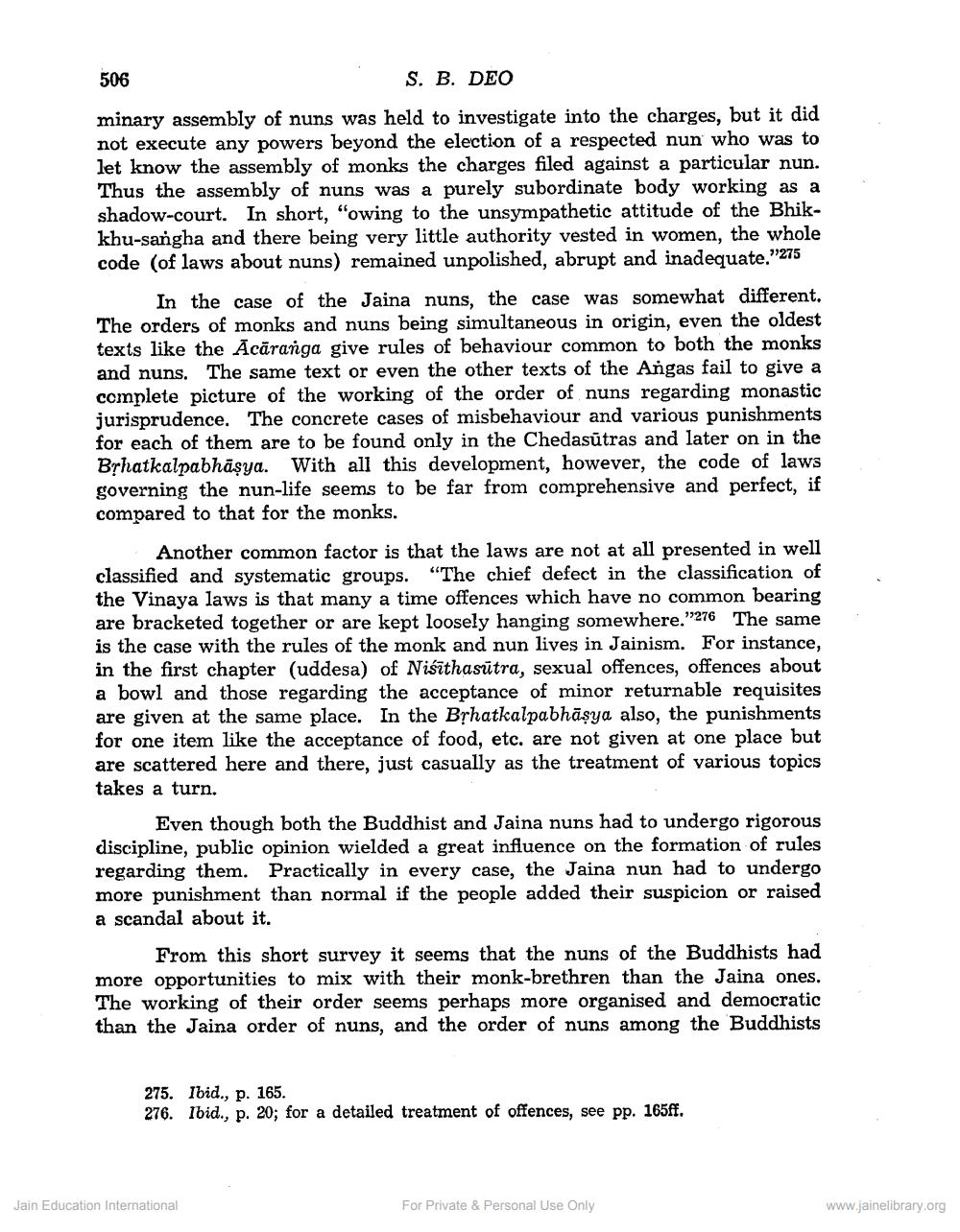________________
506
S. B. DEO
minary assembly of nuns was held to investigate into the charges, but it did not execute any powers beyond the election of a respected nun who was to let know the assembly of monks the charges filed against a particular nun. Thus the assembly of nuns was a purely subordinate body working as a shadow-court. In short, "owing to the unsympathetic attitude of the Bhikkhu-sangha and there being very little authority vested in women, the whole code (of laws about nuns) remained unpolished, abrupt and inadequate."275
In the case of the Jaina nuns, the case was somewhat different. The orders of monks and nuns being simultaneous in origin, even the oldest texts like the Acaranga give rules of behaviour common to both the monks and nuns. The same text or even the other texts of the Angas fail to give a complete picture of the working of the order of nuns regarding monastic jurisprudence. The concrete cases of misbehaviour and various punishments for each of them are to be found only in the Chedasutras and later on in the Brhatkalpabhasya. With all this development, however, the code of laws. governing the nun-life seems to be far from comprehensive and perfect, if compared to that for the monks.
Another common factor is that the laws are not at all presented in well classified and systematic groups. "The chief defect in the classification of the Vinaya laws is that many a time offences which have no common bearing are bracketed together or are kept loosely hanging somewhere." The same is the case with the rules of the monk and nun lives in Jainism. For instance, in the first chapter (uddesa) of Nisithasutra, sexual offences, offences about a bowl and those regarding the acceptance of minor returnable requisites are given at the same place. In the Brhatkalpabhāṣya also, the punishments for one item like the acceptance of food, etc. are not given at one place but are scattered here and there, just casually as the treatment of various topics takes a turn.
Even though both the Buddhist and Jaina nuns had to undergo rigorous discipline, public opinion wielded a great influence on the formation of rules regarding them. Practically in every case, the Jaina nun had to undergo. more punishment than normal if the people added their suspicion or raised a scandal about it.
From this short survey it seems that the nuns of the Buddhists had more opportunities to mix with their monk-brethren than the Jaina ones. The working of their order seems perhaps more organised and democratic than the Jaina order of nuns, and the order of nuns among the Buddhists
275. Ibid., p. 165.
276. Ibid., p. 20; for a detailed treatment of offences, see pp. 165ff.
Jain Education International
For Private & Personal Use Only
www.jainelibrary.org




